Style
See ‘Shocking’ Works by Fashion Legend Elsa Schiaparelli and the Avant-Garde Artists Who Inspired Her, From Man Ray to Méret Oppenheim
The designer is the subject of a new retrospective at the Musée des Arts Décoratifs in Paris.

The designer is the subject of a new retrospective at the Musée des Arts Décoratifs in Paris.

Christine Ajudua

The Musée des Arts Décoratifs in Paris just opened “Shocking! The Surreal World of Elsa Schiaparelli” (through January 22, 2023), dedicated to the life and work of the eccentric Italian-born couturière.
A mentee of Paul Poiret and an inspiration to Man Ray, for whom she modeled over the years, Schiaparelli presented her first designs in 1927—a collection of sweaters playfully adorned with trompe-l’oeil neckties and bows. Over the next three decades, she developed a radical body of work informed by her close ties to the Parisian avant-garde.
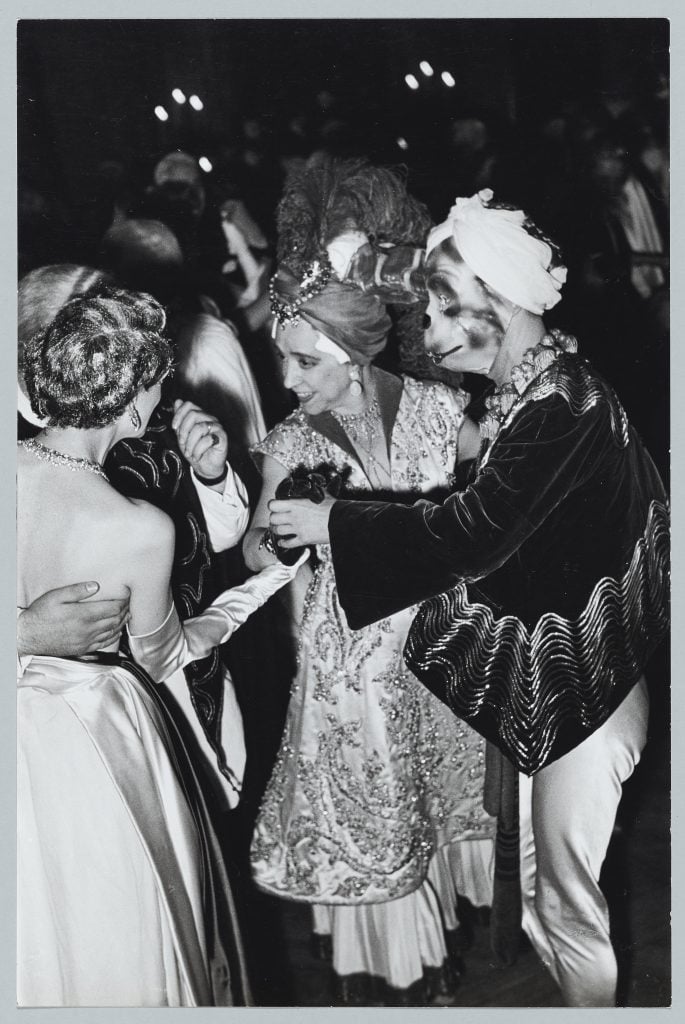
Schiaparelli at a masquerade ball in 1952; the man is wearing a jacket she designed. © Elsa Schiaparelli SAS. © Droits réservés, Paris, Palais Galliera – Musée de la mode. © Paris Musées, Palais Galliera, Dist. RMN- Grand Palais / image ville de Paris.
The exhibition’s 520 items are displayed chronologically and thematically across two levels, including 272 of Schiaparelli’s most iconic creations and collaborations—from a brass bracelet covered in animal fur, based on a design by Swiss artist Méret Oppenheim, to an evening coat and a suit jacket embossed with drawings by Jean Cocteau—alongside artworks by some of her most famous friends and contemporaries.
There’s a special room dedicated to the designer’s work with Salvador Dalí—see their Lobster Dress and Hat Shoe—as well as a special cage for her perfumes, including Shocking, its bottle modeled after a woman’s torso (a first) by Argentinean-Italian artist Leonor Fini, and Le Roy Soleil, in limited-edition Baccarat-crystal flacons designed by Dalí.
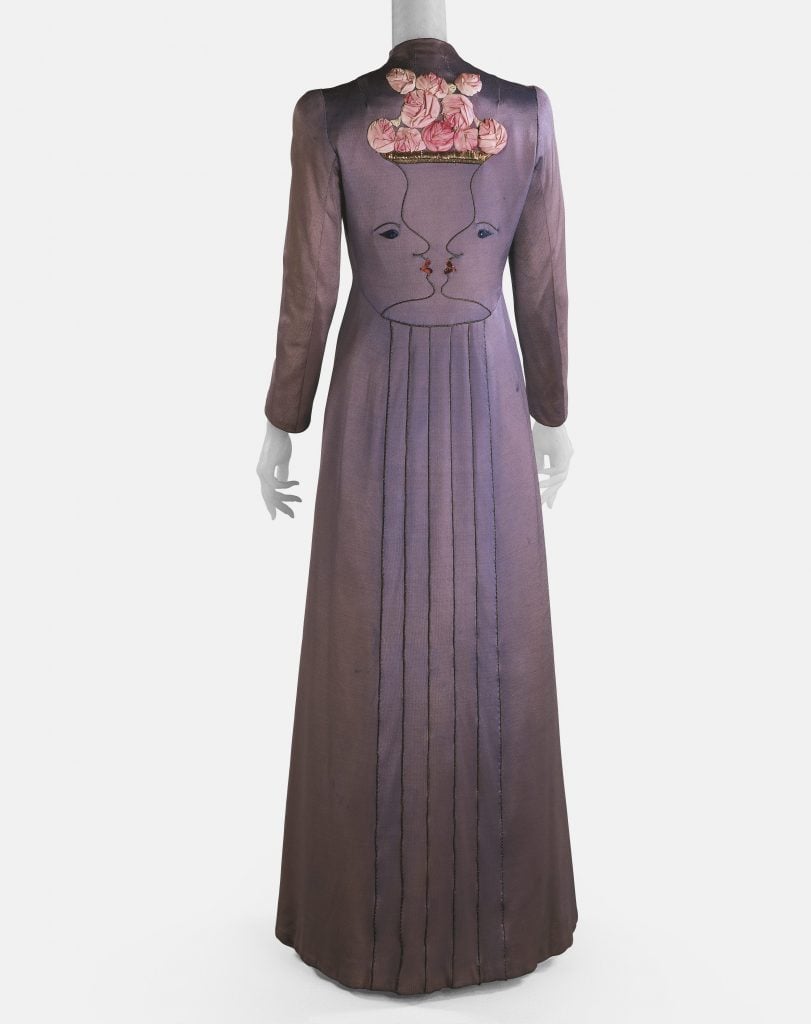
An evening coat from Elsa Schiaparelli’s fall 1937 collection, embossed with a Jean Cocteau drawing featuring silk embroidery and flowers by Lesage. © Philadelphia Museum of Art.
As Schiaparelli said in 1954, “Being able to work with artists such as Bébé Bérard, Jean Cocteau, Salvador Dalí, Vertès and Van Dongen, with photographers like Hoyningen-Huene, Horst, Cecil Beaton and Man Ray was thrilling. We felt helped, encouraged, way beyond the material and dull reality of the making of a dress to sell.”
“Dull” is the antithesis of a so-called Schiap design; this has always been easy to see. But Schiaparelli’s larger impact—on fashion and on femininity—has been less acknowledged.
“She evaded the role of muse, to which so many women are reduced, to concentrate on the essentials: being a client, becoming a designer, never surrendering, being true to herself,” said Olivier Gabet, director of the Musée des Arts Décoratifs, in a statement.
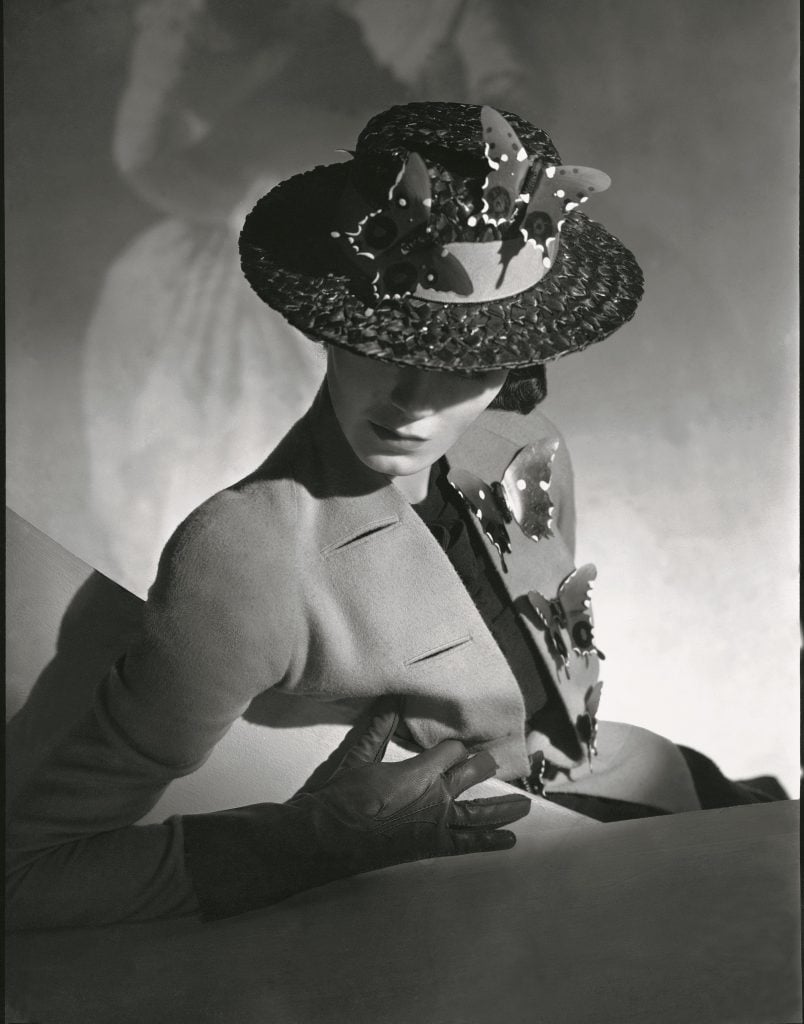
Photographed by Horst P. Horst for Vogue, March 15, 1937.
Gabet continued, “She was full of zest, she was unconventionally attractive, the very definition of chic for women around the world—Diana Vreeland most of all—but she was also hardworking, visionary.”
Schiaparelli’s oeuvre has informed countless designers, including the likes of Azzedine Alaïa, Christian Lacroix, Yves Saint Laurent, and Hubert de Givenchy—whom she hired as her first assistant in 1947, when he was 19.
The retrospective features pieces they created in her honor, culminating in a look by Daniel Roseberry, the house’s current artistic director, that reinterprets Schiaparelli’s Surrealist heritage.
Below, see a selection of works from the show.
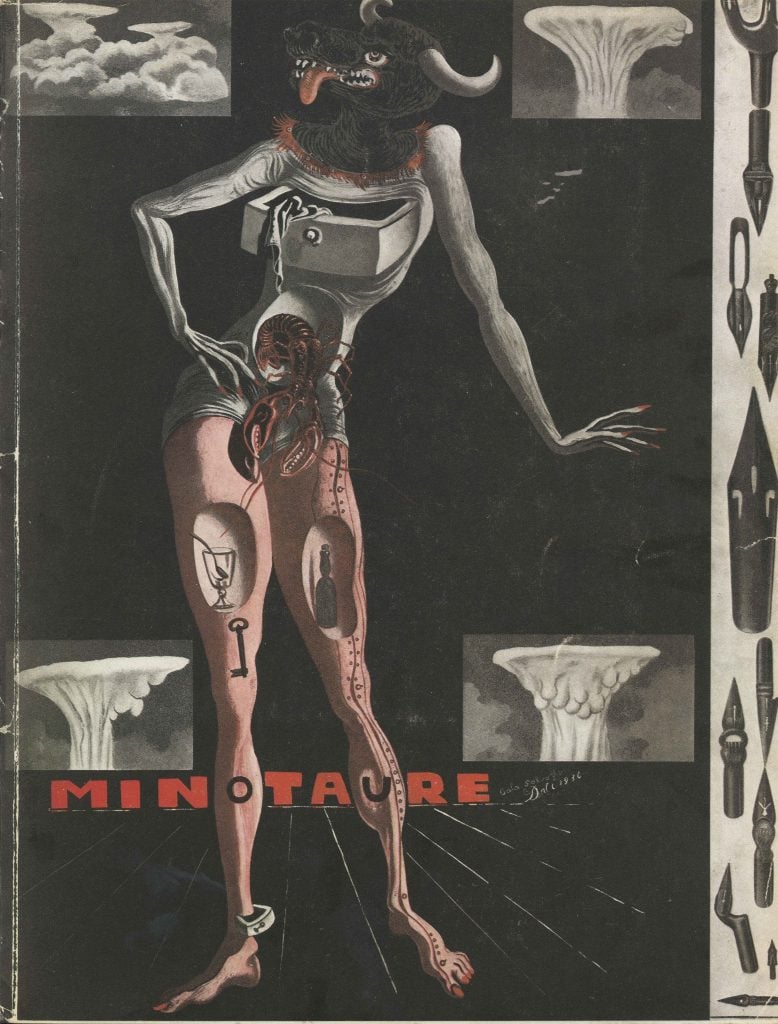
Salvador Dalí, cover for Minotaure (1936). Courtesy of Musée des Arts décoratifs © Les Arts Décoratifs.
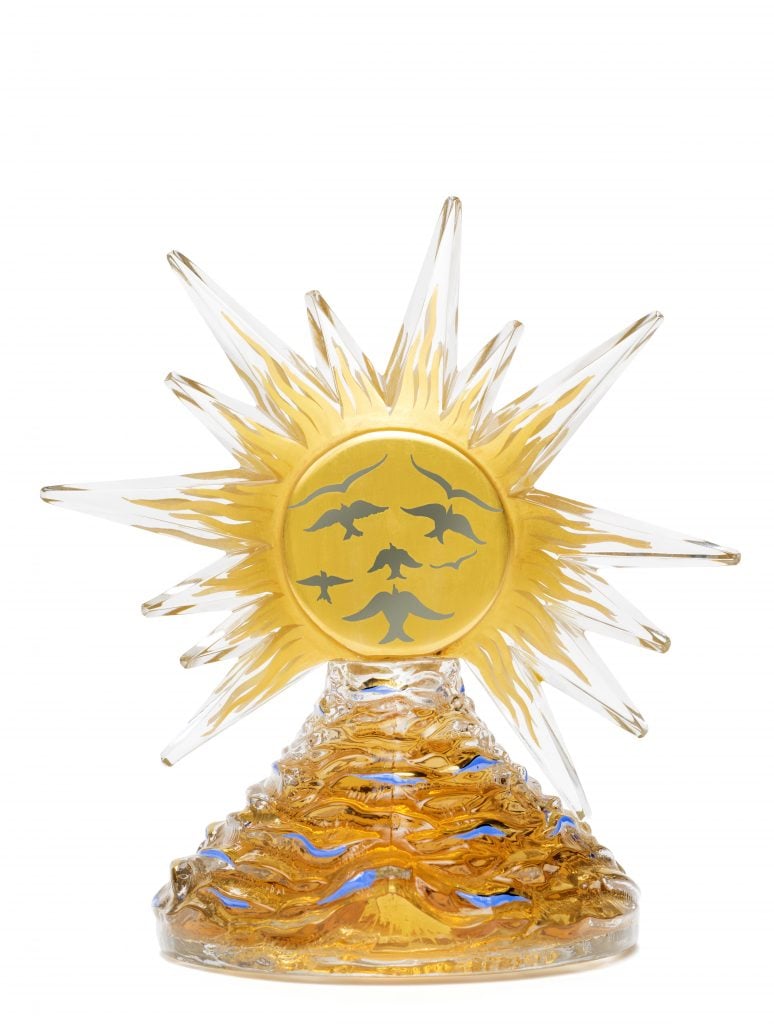
A limited-edition bottle that Dalí crafted from Baccarat crystal for Schiaparelli’s Le Roy Soleil perfume (1946). © Archives Schiaparelli.
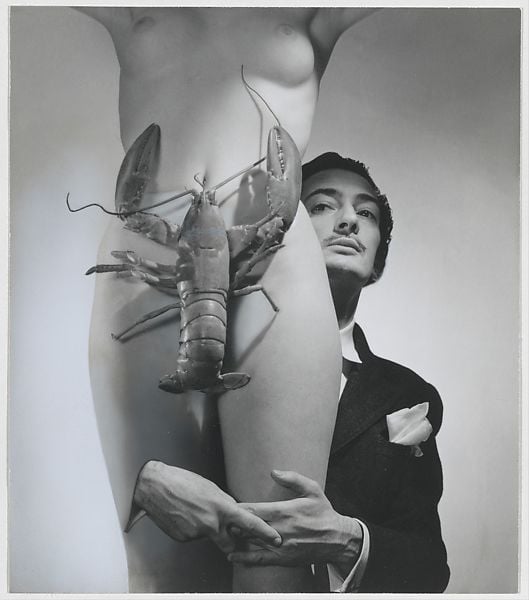
George Platt Lynes, Salvador Dalí (1939). © Estate of George Platt Lynes.
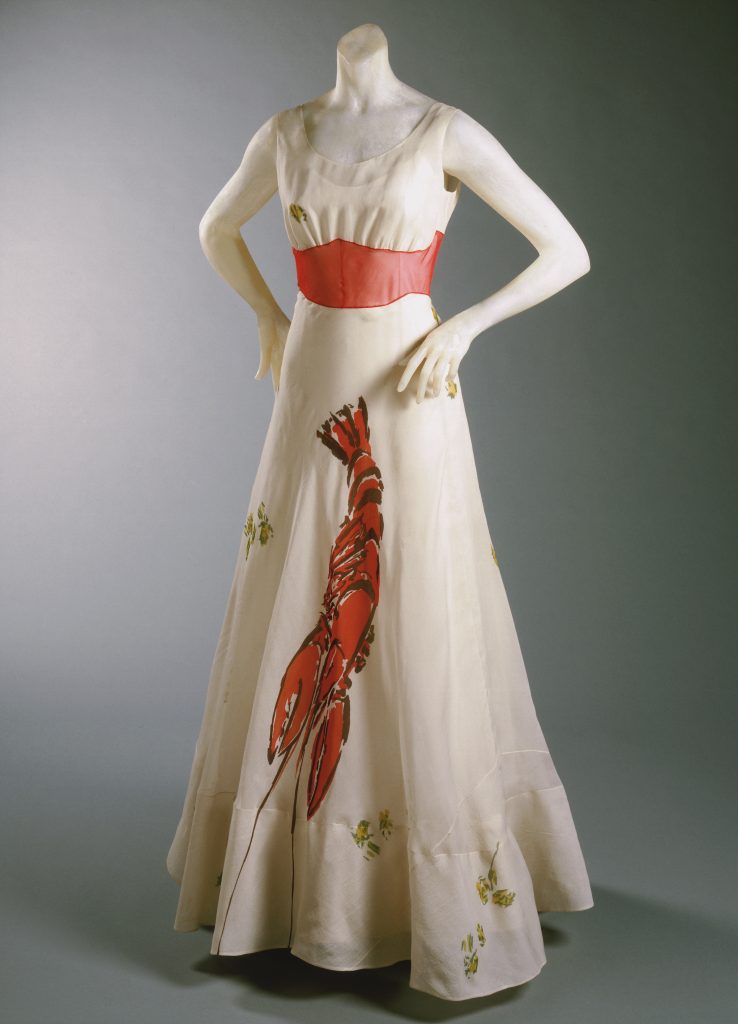
Schiaparelli created this silk evening gown with Dalí in 1937. © Philadelphia Museum of Art.
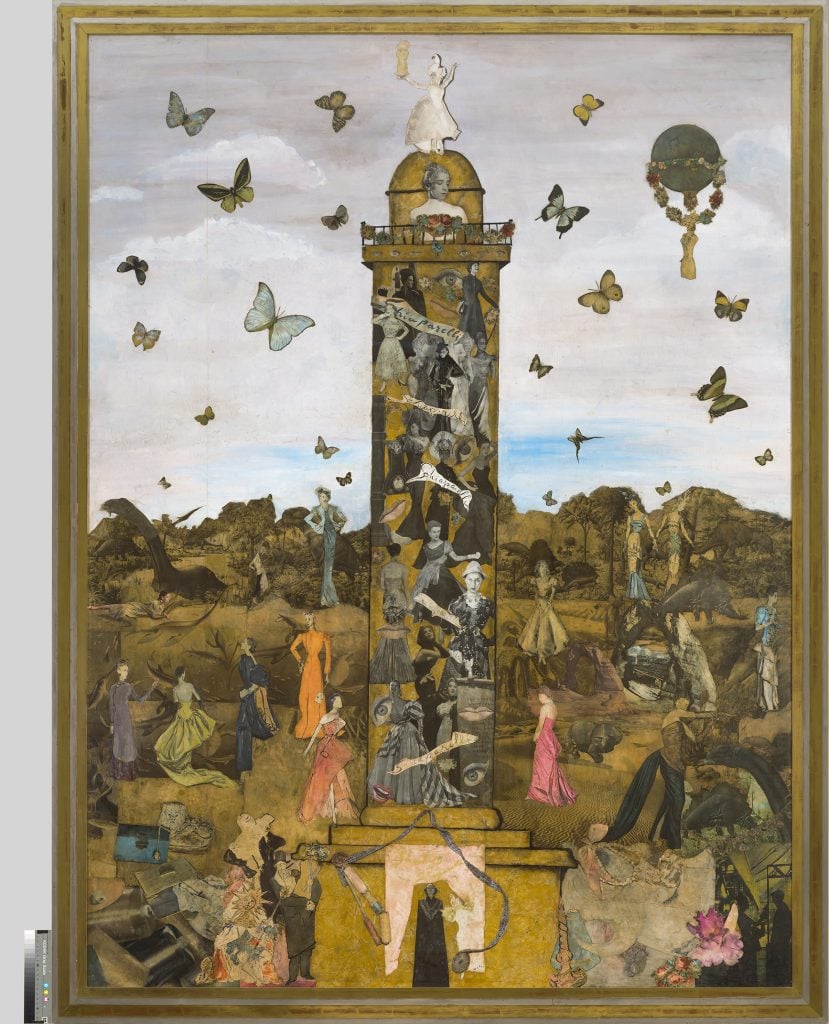
Marcel Vertès, Schiaparelli, 21 place Vendôme (1953). © Schiaparelli Archives.
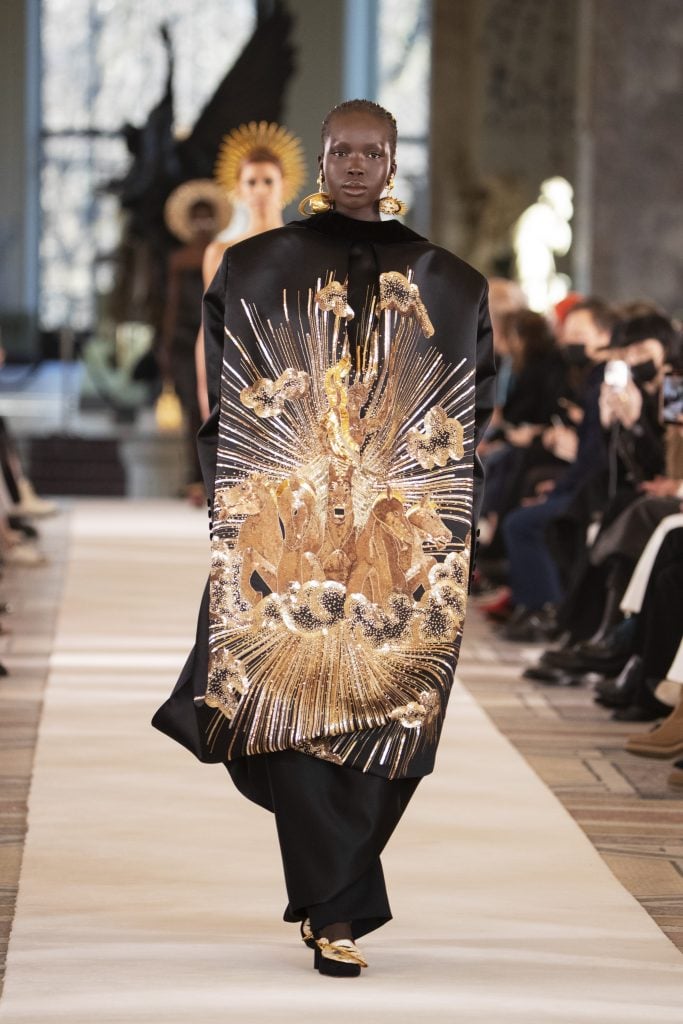
A look from Daniel Roseberry’s spring-summer 2022 Schiaparelli collection. © Maison Schiaparelli.
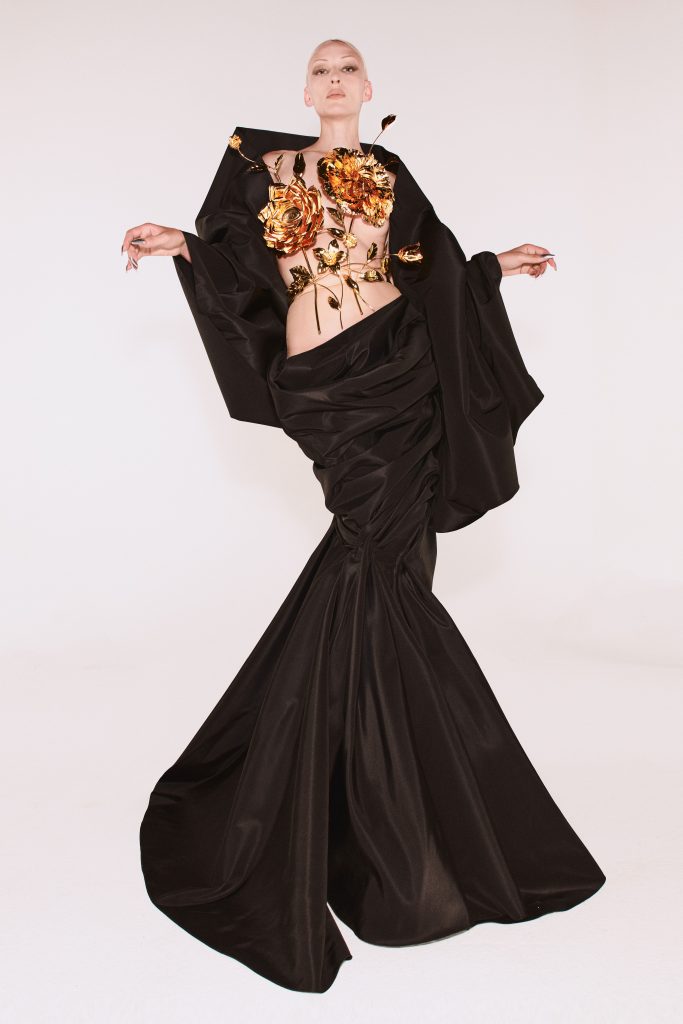
A look from Daniel Roseberry’s fall-winter 2021–22 Schiaparelli collection. © Maison Schiaparelli.
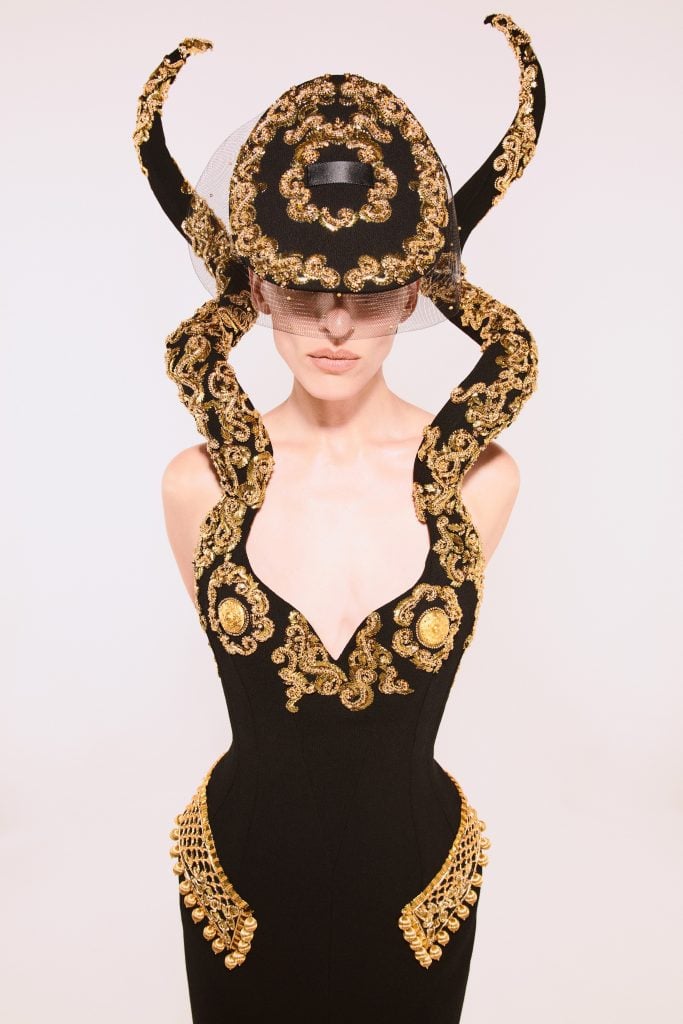
A look from Daniel Roseberry’s fall-winter 2021–22 Schiaparelli collection. © Maison Schiaparelli.
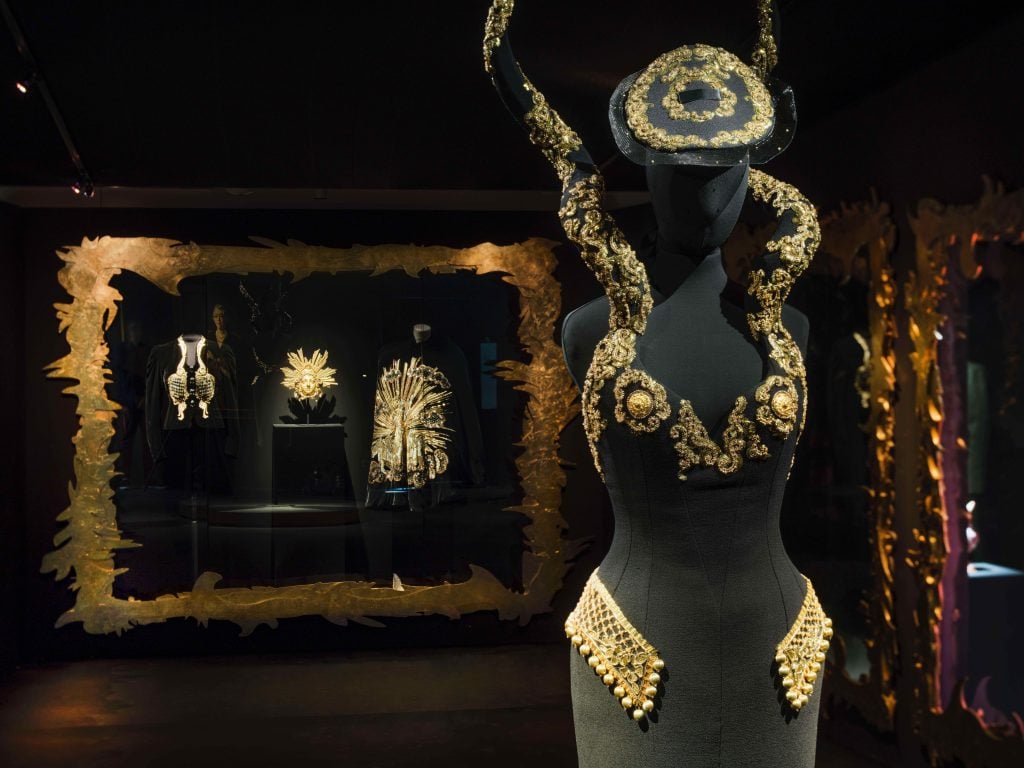
An installation at “Shocking! The Surrealist World of Elsa Schiaparelli,” with scenography by Nathalie Crinière. © Les Arts Décoratifs: Christophe Dellière.